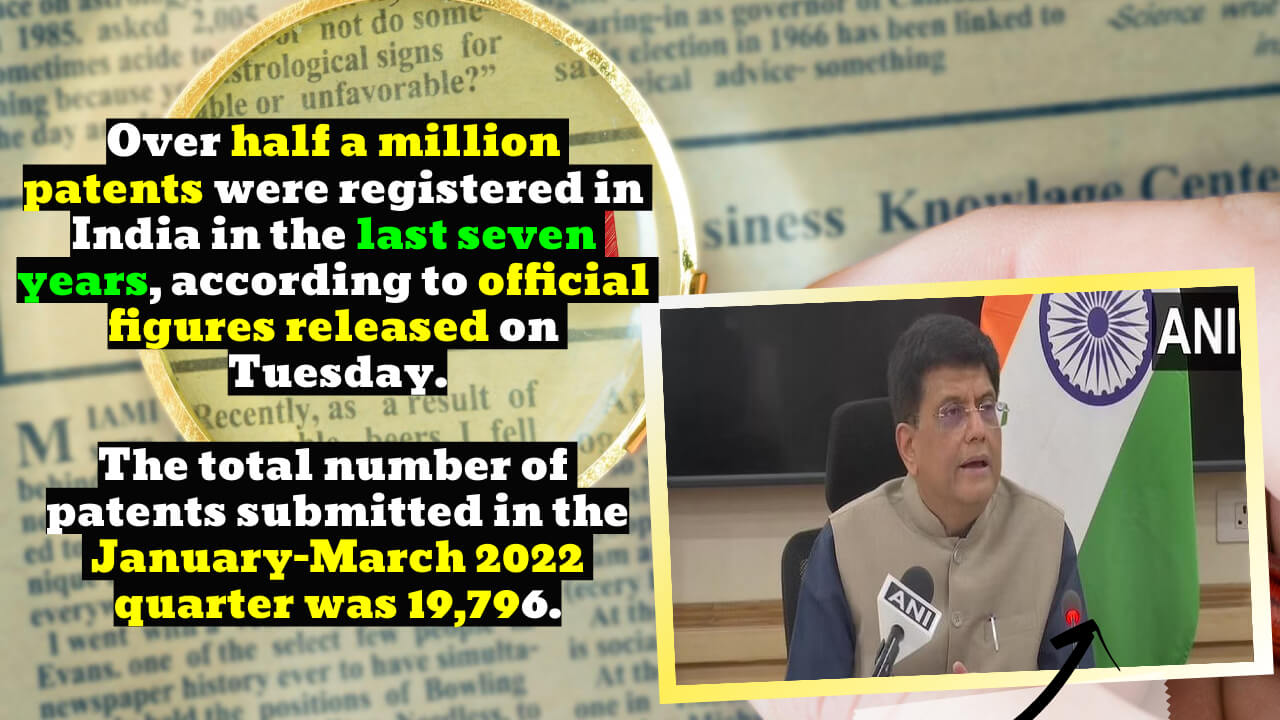The number of patents filed by Indians grew from 66,000 to 66,440 in the year 2021-22. More than 50% has changed in seven years. The number of domestic patent applications at the Indian patent office has surpassed the number of international patent applications at the same office.
Key Highlight:
- According to official data released on Tuesday, the number of patents filed in India increased from 42,763 in 2014-15 to 66,440 in 2021-22.
- According to the Ministry of Commerce and Industry data, the total number of patents awarded in 2021-22 was 30,074, approximately five times that of 2014-15.
- During the January-March 2022 quarter, 19,796 patents were submitted.
- Indian applicants filed 10,706 patent applications, while non-Indian applicants filed 9,090.
- He said the increase in patents would help India reach its goal of being among the top 25 nations in the Global Innovation Index.
The number of patents filed in India rose from 42,763 in 2014-15 to 66,440 in 2021-22, the government said on Tuesday. That’s an increase of more than 50% in seven years.
When the Ministry of Commerce and Industry released data, it said that the number of patents granted in 2021-22 rose to 30,074. This is almost five times more than in 2014-15 when the total number of patents granted was 5,978.
For the first time in more than a decade, the number of domestic patent applications at the Indian patent office has surpassed the number of international patent applications.
During the January-March 2022 quarter, 19,796 patents were filed. People in India filed some 10,706; people filed the rest outside of India.
The Union Commerce and Industry Minister, Piyush Goyal, said that the Department for Promotion of Industry and Internal Trade (DPIIT) and the IP office had worked together to make people more aware of intellectual property.
On the one hand, these efforts have led to a rise in the number of IPR filings, but they have also cut down on time it takes to get a patent at an IP office.
He said that the rise in patents would help India get closer to the top 25 countries on the Global Innovation Index.
Some of the most important things the government has done to help the country’s intellectual property system have been to cut fees for small businesses, start-ups, and educational institutions by 10%, cut fees for small businesses and start-ups by 80% and make it easier for small businesses and start-ups to get their applications processed quickly. (ANI)





[…] In the last seven years, India has filed more patents than… […]